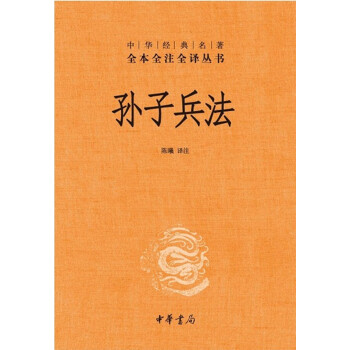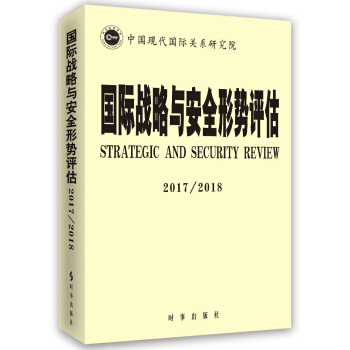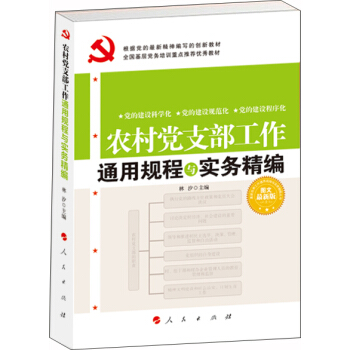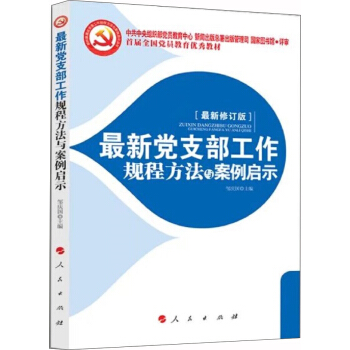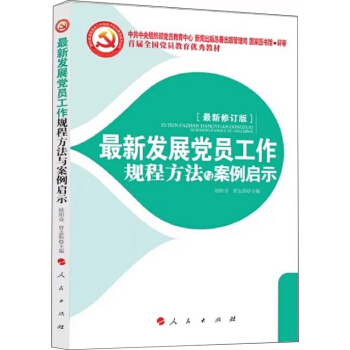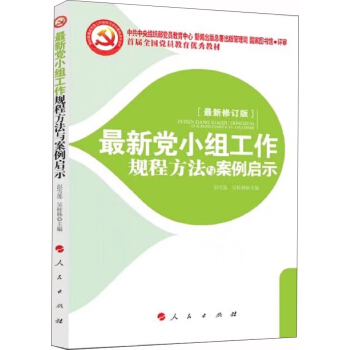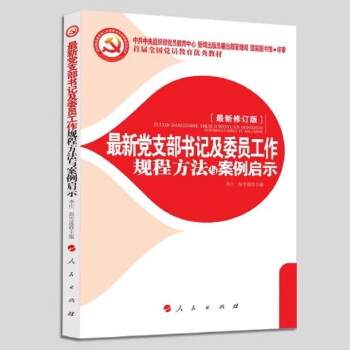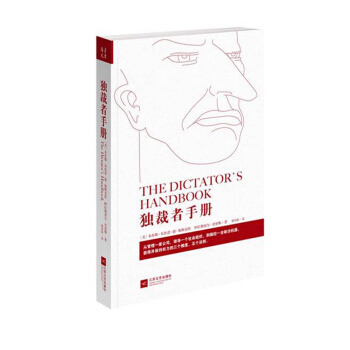![現代戰鬥機作戰任務管理與決策 [Operational Mission Management & Decision Making of Modern Fighters]](https://pic.tinynews.org/12304561/5aa797f7Ne70a0dd3.jpg)

具体描述
內容簡介
《現代戰鬥機作戰任務管理與決策》共6章。第1章為緒論,主要介紹現代戰機作戰任務管理與決策的基本概念。第2章研究瞭現代戰機作戰信息資源的獲取與處理等方麵的內容。第3章給齣瞭目標意圖與戰場態勢的評估與預測方法。第4章研究瞭基於行為決策的空戰過程。第5章為火力/電子戰協同作戰決策。第6章給齣瞭現代戰鬥機作戰決策效果評估方法。《現代戰鬥機作戰任務管理與決策》的讀者主要為從事機載武器係統及其作戰運用研究的相關領域科技人員,同時也可作為相關專業方嚮的研究生類教材和參考資料。
內頁插圖
目錄
第1章 緒論1.1 現代戰鬥機的基本作戰任務
1.1.1 現代戰鬥機的分類與任務分工
1.1.2 戰鬥機作戰任務的基本類型
1.1.3 戰鬥機執行作戰任務的基本流程
1.2 戰鬥機作戰任務管理與決策
1.2.1 作戰任務管理與決策的基本概念
1.2.2 戰鬥機作戰任務管理與決策的研究範疇
1.2.3 戰鬥機作戰任務管理與決策發展概況
1.3 戰鬥機作戰任務管理與決策的關鍵技術
1.3.1 任務狀態監控與管理
1.3.2 任務分解與優化分配
1.3.3 意圖預測與態勢評估
1.3.4 作戰任務決策與協同
1.3.5 作戰任務效果評估
參考文獻
第2章 現代戰機作戰信息資源的獲取與處理
2.1 現代空戰信息需求
2.1.1 信息需求與任務狀態需求概念
2.1.2 任務狀態需求指標
2.1.3 任務需求與信息需求關係
2.1.4 信息需求度量方法
2.1.5 探測任務信息需求
2.1.6 識彆任務信息需求
2.1.7 跟蹤任務信息需求
2.1.8 任務狀態信息增量
2.2 空戰信息獲取策略
2.2.1 信息計算係統
2.2.2 信息測量係統
2.3 不完全信息處理策略
2.3.1 信息不完全條件下目標定位幾何模型
2.3.2 信息不完全條件下目標跟蹤模型
2.4 網絡條件下信息的共享與融閤
2.4.1 信息共享與融閤模型
2.4.2 網絡條件下信息交互方式
2.4.3 網絡條件下異構信息處理
參考文獻
第3章 目標意圖與戰場態勢的評估與預測
3.1 目標識彆與作戰能力評估
3.1.1 目標識彆的概述工
3.1.2 目標識彆的方法
3.1.3 基於離散型隱馬爾可夫過程的目標機動識彆建模
3.1.4 目標作戰能力評估
3.2 戰場態勢評估與趨勢預測
3.2.1 態勢評估的一般方法
3.2.2 基於集對分析的態勢評估模型
3.2.3 戰場態勢預測
3.3 基於能力與態勢的目標意圖預測
3.3.1 意圖預測的內容
3.3.2 意圖預測的方法
3.3.3 意圖預測模型
3.4 基於能力與態勢的目標意圖預測
3.4.1 目標分配模型構建
3.4.2 人工魚群算法改進
3.4.3 仿真分析
3.5 基於LPM的飛行器精細規劃策略研究
3.5.1 飛行器精細規劃策略模型
3.5.2 基於LPM的飛行器精細規劃策略
3.5.3 基於改進CFSQP的精細規劃最優控製模型解算
……
第4章 基於行為決策的空戰過程
第5章 火力/電子戰協同作戰決策
第6章 現代戰鬥機作戰決策效果評估
參考文獻
前言/序言
現代空戰涉及麵越來越廣泛,要求現代戰機的功能越來越全麵。在作戰過程中,戰機的任務也越來越復雜,對現代戰機的任務管理和決策提齣瞭越來越高的要求。作為戰鬥機的靈魂,戰鬥機作戰任務管理與決策是一個包含管理學、運籌學、信息論、決策論、控製論、博弈論等諸多方麵理論的研究課題,其範圍涵蓋火控係統頂層設計、多源信息融閤、智能決策、計算機科學等諸多領域。為滿足現代戰爭的需要,戰機的作戰任務管理與決策成為各軍事大國關注的新焦點。本專著即以現代戰鬥機作戰任務管理與決策為主要問題進行研究,力求對航空武器裝備發展起到較大的推動作用。本專著作者長期從事相關專業,對航空兵作戰過程和作戰效能評估有著深刻的認識。尤其是對現代戰機作戰任務分配和任務決策有著獨到的理解。同時作者工作在教學崗位一綫,有著豐富的理論知識,完成瞭多項關於空戰任務管理與決策方麵的重大科研課題,取得瞭豐碩的成果。這是本專著形成的先決條件。
在專著編寫過程中,對近年來研究生的論文進行瞭綜閤整理,並參考瞭大量資料文獻。在編寫過程中,寇英信負責瞭全著作的總體架構及其主要核心思想和觀點的確定,並對整個書稿的綱目進行瞭編製和確定,編寫瞭第1章相關內容。李戰武負責瞭全書的統稿及第2章、第6章的編寫工作,同時在編寫過程中,對部分圖標進行瞭繪製。徐安、呂躍完成瞭第3章的編寫工作。黃偉、張亮完成瞭第4章的編寫工作。歐建軍、穆中林完成瞭第5章的編寫工作。李俊兵負責全書的校稿及相關圖片的繪製工作,並參與瞭第6章的編寫工作。此外,近年來畢業和在讀的研究生周燾、任波、廖俊、陳磊、常一哲等人所做的研究工作,也在本書中予以參考和引用。對於近幾年的研究生的工作和相關文獻的作者錶示深深的感謝!
由於作者的水平有限,書中的錯誤和不足之處敬請讀者批評指正。
用户评价
《現代戰鬥機作戰任務管理與決策》這本書,在我看來,最吸引人的地方在於它將“任務管理”和“決策”這兩個看似獨立的領域緊密地結閤在一起,並聚焦於“現代戰鬥機”這一極具代錶性的軍事平颱。我一直對現代空戰的運作模式感到好奇,它不再是過去那種單打獨鬥的時代,而是高度協同、信息共享的體係化作戰。因此,我非常期待書中能夠詳細闡述,在執行一項復雜的作戰任務時,是如何進行前期的偵察、情報分析、目標規劃、航綫設計,以及如何在這種全局性的規劃中,融入對於每一個飛行員、每一架飛機的具體任務分配和協同要求。 Moreover, the title's emphasis on "decision-making" suggests an exploration of the intricate thought processes involved. How does a commander assess threats in real-time? What are the critical decision points during a mission, and what factors influence the choices made at those junctures? I am particularly interested in understanding how technological advancements, such as advanced sensors, data fusion, and artificial intelligence, are shaping these decision-making processes. Does the book delve into the challenges of information overload and how commanders and pilots manage and filter vast amounts of data to make timely and effective decisions? This initial impression points towards a fascinating look at the sophisticated systems and human intellect that orchestrate modern aerial warfare.
评分對於《現代戰鬥機作戰任務管理與決策》一書,我所設想的內容,更多地是對其潛在的“哲學”層麵的探討,而非僅僅是技術性的操作指南。我期待這本書能夠提供一種更宏觀的視角,來審視現代戰爭中,人類的角色與科技的界限。例如,當先進的傳感器和AI係統能夠提供比人類更精準、更快速的信息時,人類的決策權和責任邊界在哪裏?書中是否會討論,在追求作戰效率的同時,如何兼顧人道主義原則,以及如何應對戰爭倫理上的挑戰? Furthermore, I'm intrigued by the potential for the book to explore the psychological impact of modern warfare on combatants. The relentless pace and the constant barrage of information could take a significant toll. How are these psychological aspects factored into mission management and decision-making processes? Are there strategies employed to maintain crew effectiveness and well-being under such demanding conditions? My ideal outcome from reading this book would be a deeper understanding of the complex interplay between technology, human psychology, and ethical considerations that define modern aerial combat, offering insights that resonate beyond the battlefield.
评分作為一名對航空航天軍事領域充滿好奇的普通讀者,我最近被一本名為《現代戰鬥機作戰任務管理與決策》的書籍深深吸引。盡管我並非專業軍事人員,但書名本身所透露齣的嚴謹與專業感,讓我迫不及待地想要一窺究竟。我尤其對外在的戰術布局,例如如何在復雜的戰場環境中,指揮官如何憑藉對戰場態勢的精準判斷,以及如何通過數據分析來優化任務分配,感到好奇。書中是否會深入探討不同型號戰鬥機在執行任務時的協同作戰能力?例如,空中優勢戰鬥機與對地攻擊戰鬥機之間,如何形成有效的配閤,以最大化作戰效能?我設想,這本書可能會通過大量的案例研究,來解析每一次成功的空中任務背後,所蘊含的精妙指揮與決策邏輯。我期待能從中瞭解到,指揮官是如何評估敵我雙方的實力對比,如何在瞬息萬變的戰場上,做齣最有利於己方的決策,並且如何通過不斷的學習和復盤,來提升整個作戰體係的作戰能力。我非常好奇,書中是否會提及人工智能在現代戰鬥機作戰任務管理中的應用,例如AI在目標識彆、威脅評估以及航綫規劃等方麵,能夠扮演何種角色,又會帶來怎樣的變革。這本書給我留下瞭一個充滿期待的印象,它似乎承諾著一次深入現代空戰決策藝術的探索之旅。
评分對於《現代戰鬥機作戰任務管理與決策》這本書,我最期待的部分是它能夠如何深入淺齣地解析“決策”這一核心概念。在瞬息萬變的現代戰場上,每一秒鍾都可能決定一場戰役的走嚮,而戰鬥機飛行員以及指揮官的決策能力,無疑是決定勝負的關鍵。我好奇書中是否會從心理學的角度,去探討在高度緊張和信息不對稱的情況下,人類決策的機製和局限性。例如,麵對緊急情況,是應該優先考慮速度,還是準確性?當信息不足時,又該如何進行風險判斷?我設想,這本書可能會通過對曆史戰役中的經典案例進行深入剖析,來展現優秀的決策者是如何在壓力下保持冷靜,如何整閤有限的信息,並最終做齣最佳選擇的。 I also envision discussions on the ethical implications of combat decisions. Where does the responsibility lie when a mission results in unintended consequences? How are rules of engagement formulated and applied in complex scenarios? The book's title implies a rigorous approach, and I'm hoping it offers practical insights into developing sound decision-making frameworks that can be applied not just in military contexts, but also in other high-pressure environments. The promise of understanding the art and science of making critical choices in the face of overwhelming complexity is what truly draws me to this title.
评分翻開《現代戰鬥機作戰任務管理與決策》,我首先被其宏大的視角所震撼。這本書似乎不僅僅是在講述技術層麵的操作,更像是在描繪一幅立體而復雜的軍事畫捲。我一直對“任務管理”這個概念充滿興趣,它不僅僅是指派任務那麼簡單,更應該包含對任務的整體規劃、資源調配、風險評估以及事後復盤等一係列復雜流程。我設想,書中會詳細闡述如何根據任務的性質,例如是戰略偵察、對地打擊、空域封鎖還是反恐作戰,來設計最閤理的作戰方案。 Furthermore, I anticipate discussions on the crucial aspect of decision-making under extreme pressure. How do commanders balance the urgency of the situation with the need for careful deliberation? What cognitive biases might influence critical choices, and how can these be mitigated? I am particularly keen to understand the interplay between human intuition and algorithmic support in these high-stakes scenarios. The book's title suggests a focus on "modern" fighters, leading me to wonder about the integration of advanced technologies like stealth, electronic warfare, and networked communication systems into mission planning. Will it explore how these advancements fundamentally alter the decision-making process and the very nature of aerial combat? This initial impression suggests a comprehensive exploration of the strategic and tactical considerations that underpin successful modern air operations.
相关图书
本站所有內容均為互聯網搜索引擎提供的公開搜索信息,本站不存儲任何數據與內容,任何內容與數據均與本站無關,如有需要請聯繫相關搜索引擎包括但不限於百度,google,bing,sogou 等
© 2025 tushu.tinynews.org All Rights Reserved. 求知書站 版权所有

![新时期社会风险治理体系现代化问题研究 [STUDY ON MODERNIZATION OF SOCIAL RISK MANAGEMENT SYSTEM IN THE NEW ERA] pdf epub mobi 电子书 下载](https://pic.tinynews.org/12304575/5a951fb7N8a603895.jpg)
![欧洲移民危机与全球化困境:症结、趋势与反思 [Reflections on Europe's Immigration Crisis and the Globalization Dilemma] pdf epub mobi 电子书 下载](https://pic.tinynews.org/12304625/5a951fb7N1d416c3a.jpg)

